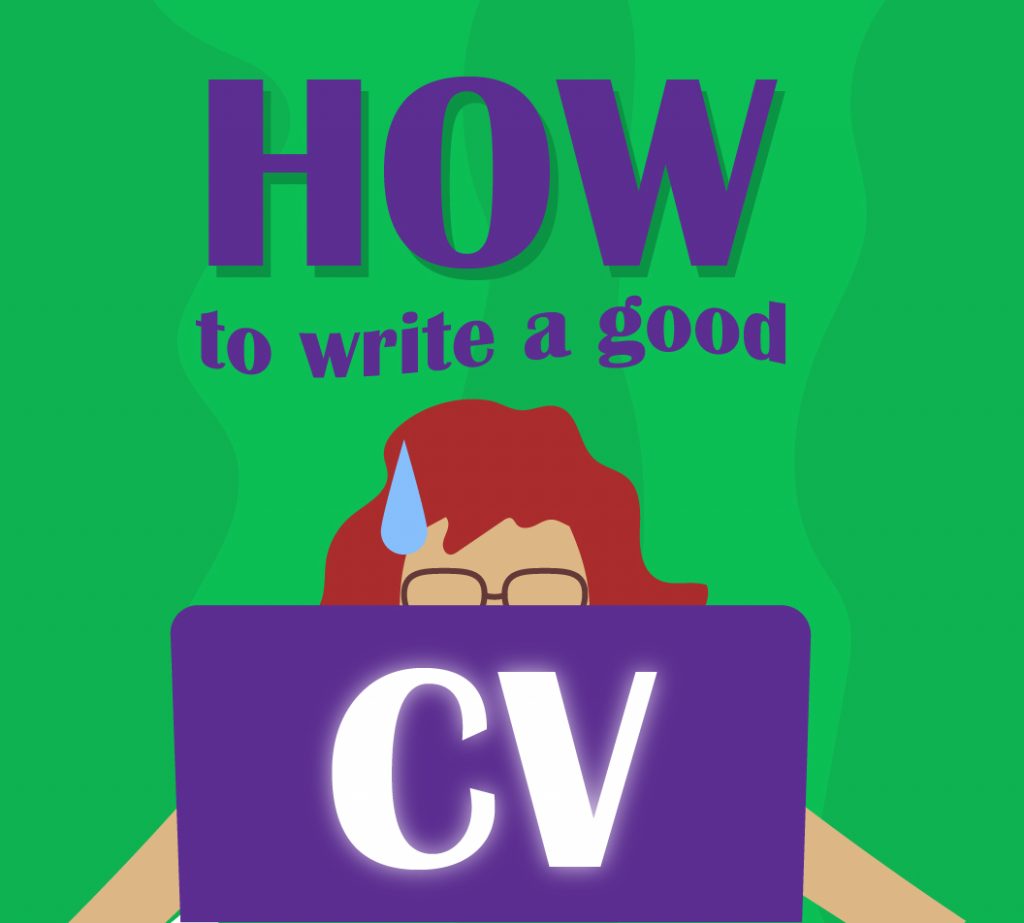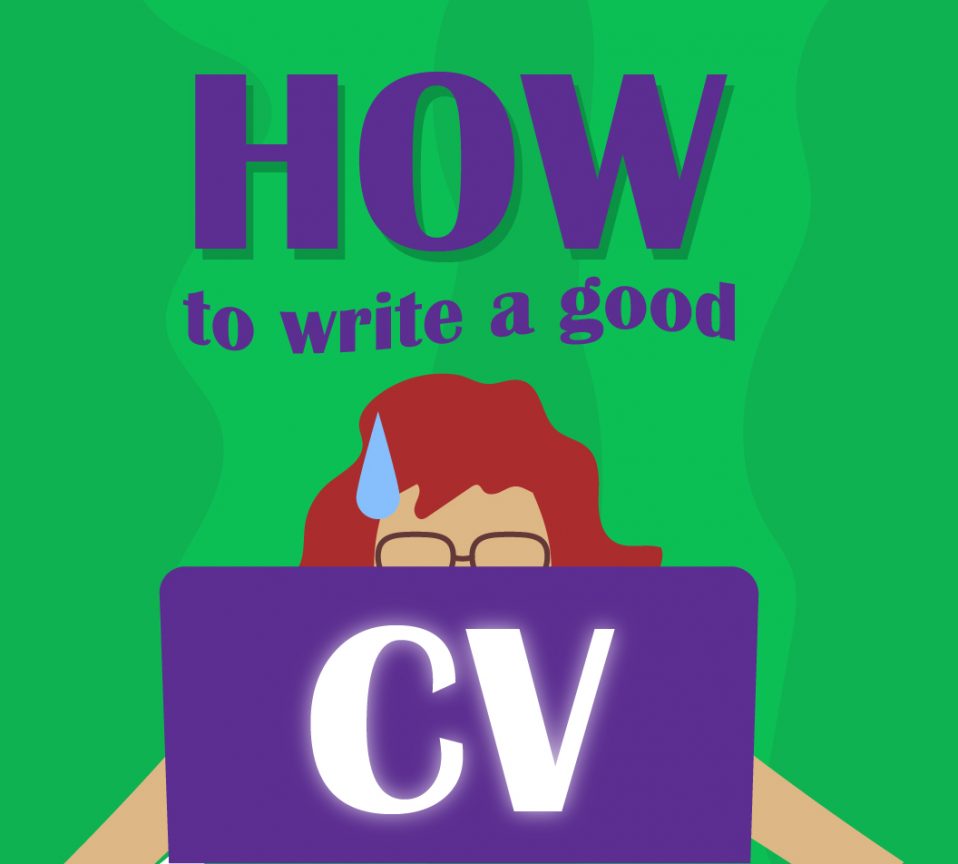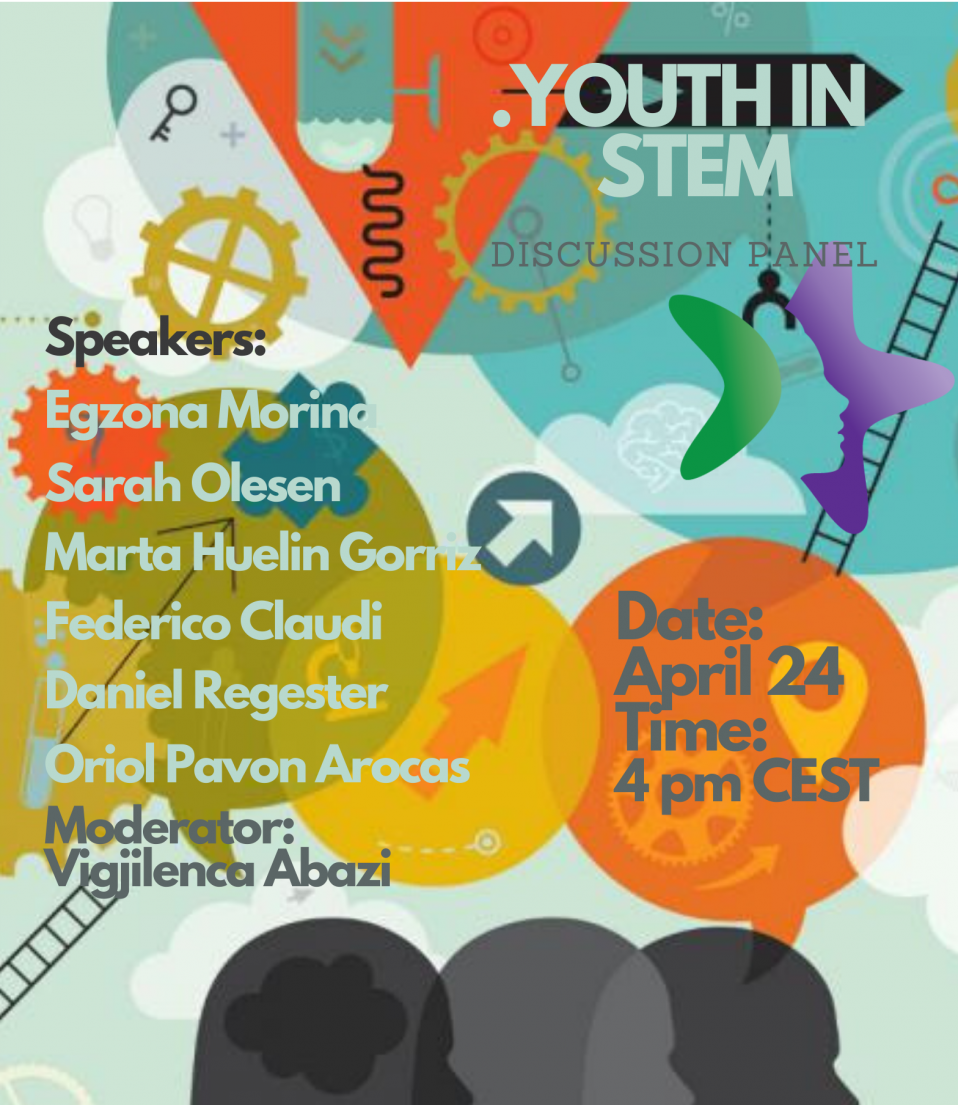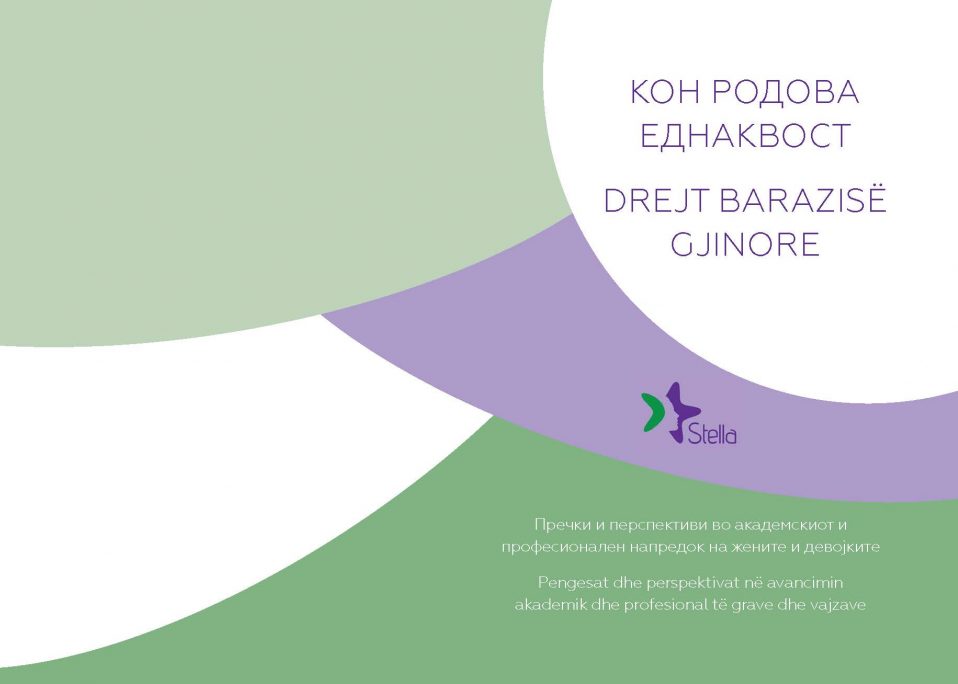Your CV is your story. How you tell your story matters and it especially matters who your audience is.
A common mistake we make is having the same CV for different job applications. Another thing we often get wrong is to list chronologically what we’ve done rather than focusing on what is most important to a particular employer or university in case you are looking to continue your education.
We also tend to write everything we have ever done – after all, we put time and effort into these activities and we want to acknowledge them. But your future employer only needs to know she has the ‘right’ person in front of them for the job; they are not interested in reading a report card of life activities for each candidate.

Here are some quick tips of how to write a good CV:
- Keep it short: stick to 2 pages, write in a clear font and no smaller than 11 font-size.
- Read, re-read, read aloud: grammatical mistakes or odd sentences can happen to the best of us but it’s a guaranteed way of not getting the job.
- Contact details: Make sure you have given correct contact details and provide a professional email address. For example, Tina_tigerlover_3#[email protected] is a no-go. Open a new email account if you have to.
- Good match: You must show you are up for the job so select only achievements and activities that make you a good match to the profile the employer is seeking. If you only have modest previous experiences, you can include them by linking to how that background matters in the current job. For example, if you are applying for a project coordinator position but you have only a few previous jobs as shop assistant or event organiser, you can add a short description of your tasks and responsibilities such as how you can work under pressure, you are good with people skills and you can plan long-term. It is the qualities and experiences that will make you the right choice.
- Don’t lie, don’t exaggerate: If you were not the top of your class, don’t say you were; if you only got a passing score, don’t say you were excellent, etc. When we really want a job we can get carried away with ‘polishing’ a few facts. But not only is this a mistake, it is fraud. You can and should focus on positive achievements, but stay true to what you have done.
Writing a good CV is also about having support. Stella Mentors provide one-on-one support to girls and women seeking their next educational or career step. If you want to be a mentor or a mentee, simply sign up for free at Stella.mk







Recent Comments